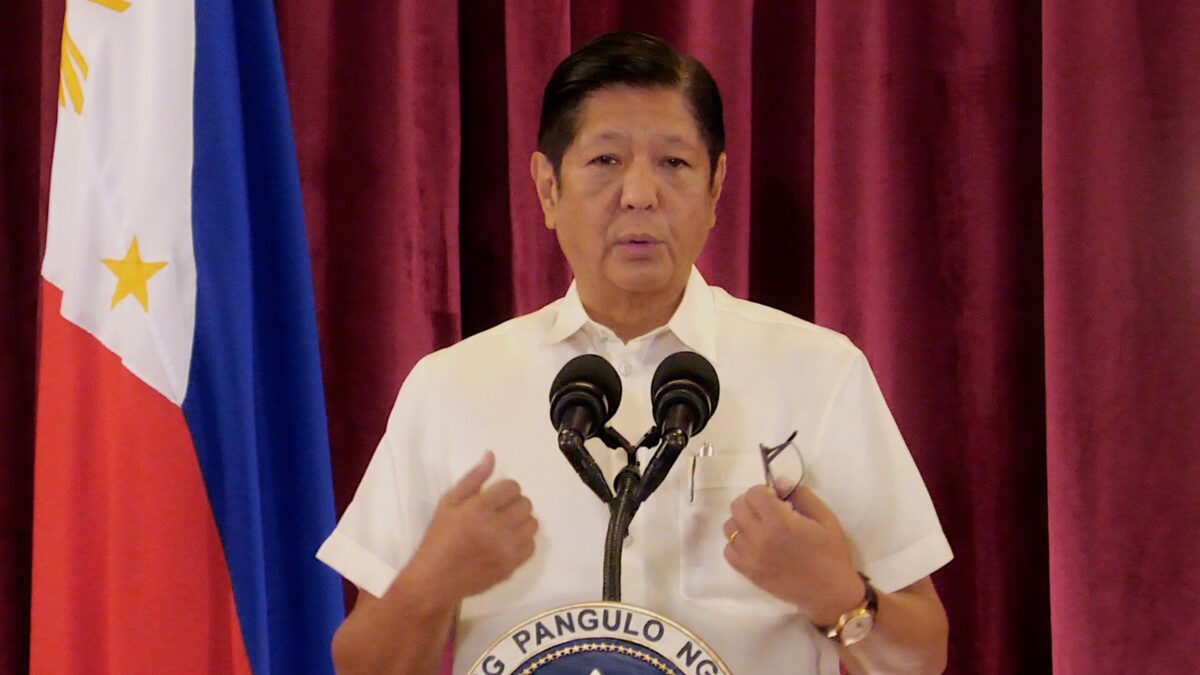
President Ferdinand Marcos Jr. delivers his speech at Villamor Airbase in Pasay City before flying to Brunei Darussalam for an official visit on May 28, 2024. INQUIRER.net / RYAN LEAGOGO
MANILA, Philippines — President Ferdinand Marcos Jr. on Tuesday ordered the expansion of the Pantawid Pamilyang Pilipino Program (4Ps) to include pregnant and lactating women.
The Presidential Communications Office (PCO) said Marcos’ directive was based on the proposal of the Department of Social Welfare and Development (DSWD) to increase 4Ps grant amounts and provide cash grants to First 1,000 Days (F1KD) of children.
The DSWD said adjustments to the 4Ps would ensure that parents could seek health services to address the health needs of their children in their first 1000 days, improving compliance with program conditions that would prevent malnutrition and stunting.
“Okay. Yes. Let’s do that. On the first 1,000 days of a child’s life, bring the mother, the family into the system. That’s really good,” the President was quoted to have said during a sectoral meeting on Tuesday, June 11, according to a statement released by the PCO.
READ: Marcos wants DSWD to adjust cash aid for inflation
Marcos instructed the DSWD and National Economic Development Authority to finalize the figures before sending it to him “so that the necessary adjustments could be done,” as he underscored the importance of the additional support for 4Ps beneficiaries.
Under the current program, a 4Ps beneficiary-family receives daycare and elementary grant of P300 per child per month for 10 months, conditional on their child’s school attendance; P500 per child per month for 10 months for junior high school with the same conditionality on their child’s school attendance; and P700 per child per month for 10 months for senior high school with the same condition.
READ: Rice instead of cash for 4Ps recipients? Marcos contemplates – DA exec
A 4Ps beneficiary-household likewise gets P750 per month for 12 months provided that their children aged two to 14 undergo growth development and monitoring, deworming, and attend family development sessions.
Previously, Marcos ordered a study on what adjustments could be made in the 4Ps cash grants to address health gaps in the system and help beneficiaries keep up with inflation.